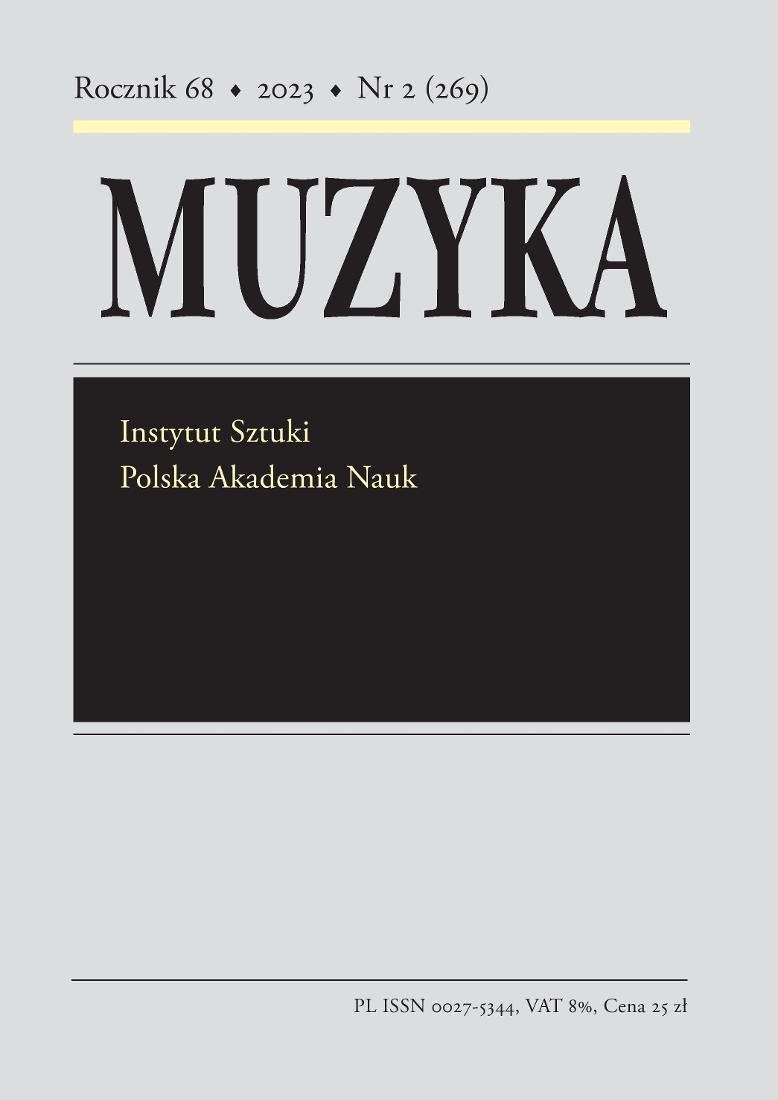Opera „Filozof zmieniony” Michała Kazimierza Ogińskiego w świetle nowych badań
Michał Kazimierz Ogiński’s Opera ‘Filozof zmieniony’ in the Light of Latest Research
Author(s): Irena BieńkowskaSubject(s): Theatre, Dance, Performing Arts, Music
Published by: Instytut Sztuki Polskiej Akademii Nauk
Keywords: Michał Kazimierz Ogiński; Slonim; A Philosopher Transformed; comic opera; Polish opera
Summary/Abstract: Filozof zmieniony (A Philosopher Transformed) is a comic opera with educational elements, one of the first Polish-language works in this genre, staged in the carnival of 1771 in Słonim (now Slonim, Belarus) at the court theatre of Michał Kazimierz Ogiński. At present we only have its libretto, anonymously published in Vilnius in 1771 and again in 1779. All the twelve individual parts are sung. The libretto is preceded by a didactic preface and features two themes: a lyrical (amorous) and a satirical (humorous) one. The latter is reflected in character presentation, enhanced by the fact that most of them have telling surnames. Possibly inspired by Moliere’s comedies, Ogiński also introduced realistic and satirical elements into the text. The opera comprises a total of sixteen sung numbers (nine in Act I, seven in Act II), including ten arias (one preceded by a recitativo), three duets, a trio, a sextet, and the final chorus. The opera contains two songs not previously identified by musicologists, which come from Ogiński’s 1770 collection of songs. These two, ‘Anetka’ (‘Anette’) and ‘O Filozofii’ (‘On Philosophy’) are used respectively in Scenes I and VI of Act II. The melody of the former song was also printed as an ‘Aria’ in an 1806 violin handbook, which shows that Ogiński’s opera enjoyed some popularity. The handbook quotes (mostly without giving the names of composers) melodies belonging to the late eighteenth-century repertoire. These include pieces by Ignaz Pleyel and excerpts from operas staged in Warsaw, such as Jan Stefani’s Cud mniemany, czyli Krakowiacy i Górale (The Supposed Miracle or Cracovians and Highlanders) and the extremely popular Zośka, czyli Wiejskie zaloty (Zoska, or the Village Amours) by Maciej Kamieński.
Journal: Muzyka
- Issue Year: 68/2023
- Issue No: 2
- Page Range: 72-93
- Page Count: 22
- Language: Polish

